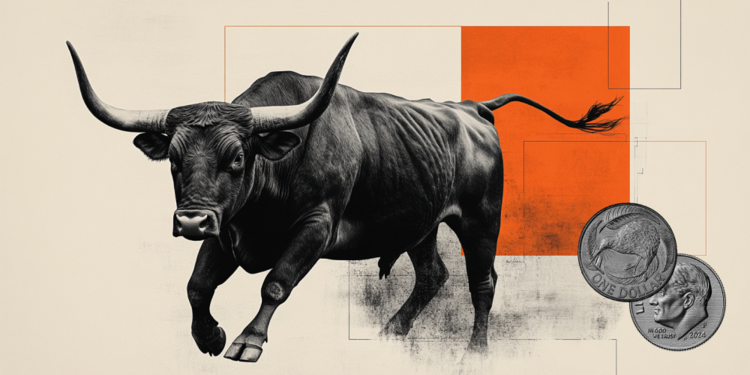This Tuesday (7), the ministers of the economy, Paulo Guedes, and the Civil House, Ciro Nogueira, will participate in the annual meeting of the Council of the Organization for Economic Cooperation and Development (OECD).
The Brazilian delegation, which will be led by the Chief of Staff, travels with the objective of continuing the process of joining Brazil to the organization, with negotiations on the necessary terms and conditions.
This is a priority topic on the economic and foreign relations agenda for the government of President Jair Bolsonaro (PL), who is seeking re-election in October. Specialists believe that the country’s entry into the organization is important and can bring economic benefits.
A study published by the Institute of Applied Economic Research (Ipea) says that joining the OECD can increase the Brazilian Gross Domestic Product (GDP) by 0.4% per year.
Among the expected gains with the adhesion are the increase in the growth rate of per capita income, the advance in the indicators of corruption control and regulatory quality and the increase in foreign direct investment.
For the foreign trade strategist at Banco Ourinvest and former Secretary of Foreign Trade, Welber Barral, in the medium and long term, the objective is for Brazil to be able to harmonize several international rules, with regard, for example, to rules on transfers international taxes and international taxation.
The specialist evaluates these “standardizations” as something positive and that can benefit the country economically. “The expectation is greater international stability, greater predictability in the performance of large companies and the expectation is that this will be reversed in greater investment capacity for Brazil”, evaluates Barral.
On the other hand, Felipe Sichel, chief strategist at Banco Modal, also assesses how this could be beneficial for the current government, given that Brazil’s entry into the OECD is related, in part, to the ” certification, that there are structural issues in Brazil that are well resolved”.
The accession process
For the nation to be part of the organization, it must comply with a series of principles that govern member countries.
Among them are “the preservation of individual freedom, the values of democracy, the protection of human rights and the value of open, commercial, competitive, sustainable and transparent market economies”, according to the communiqué published by the organization about the opening of the accession process of Brazil.
In addition, the country must also be aligned with the promotion of sustainable economic growth, commitment to combating climate change, deforestation and the loss of biodiversity.
All candidate countries then undergo an extensive assessment of all these requirements and can count on support in the eventual adaptations that may be necessary, before they can be accepted and receive the formal invitation as new members of the OECD.
The evaluation has no set deadline and is carried out by more than 20 technical committees.
Brazil in the OECD
Brazil started the process of joining the organization in 2018. The procedure involved several technical teams. In January of this year, the OECD Council of Ministers approved the start of negotiations on the country’s accession to the entity. On the occasion, Minister Paulo Guedes celebrated.
“They recognize our importance in all negotiations, and I always emphasized this: we will always help, but we also want your help. And that recognition comes now,” she said.
In May, the council approved a new stage: the invitation to Brazil to join the Capital Movements Liberalization Code and the Intangible Current Operations Liberalization Code – legal instruments of great importance for the entity.
All OECD members are members and, since 2012, the possibility of membership by non-members has been open.
What is still missing?
According to the Ministry of Economy, Brazil has so far adhered to more than 106 of the 253 OECD legal instruments.
Part of those that are still lacking concern the country’s general tax and economic system. For specialists, for some of them to be completed, structural reforms, such as the Tax Reform, must be put into practice.
Regarding possible deadlines for the completion of the process, the Ministry of Economy informed that no deadline has been set for the conclusion of the adhesion to the legal instruments nor for the conclusion of the process of accession to the OECD.
Piter Carvalho, economist at Valor Investimentos, assesses that Brazil has great challenges in specific themes so that it can be part of the group.
“The challenge is great, Brazil has a lot to change in environmental issues, in the area of governance and also in the credibility of institutions”. For the specialist, although the difficulty is great, the possibility of being part of the organization is a “great opportunity for the country”.
In a statement made in May, President Jair Bolsonaro said that the country should be part of the group “in two or three years”.
about the organization
The OECD emerged in 1948, however, it was not yet known through its current nomenclature, but rather as the Organization for European Economic Cooperation (OEEC), an entity bringing together 18 Western European countries, at the end of the Second World War and in the beginning. of the Cold War.
The organization remained that way until 1960, when the group was re-founded as the “Organization for Economic Co-operation and Development” – the OECD – in a convention signed by the first 20 members, which included the main European countries, in addition to the United States and Canada. .
Currently, the following are member countries: Germany, Australia, Austria, Belgium, Canada, Chile, Colombia, Korea, Costa Rica, Denmark, Slovakia, Slovenia, Spain, United States, Estonia, Finland, France, Greece, Hungary, Ireland, Iceland, Israel, Italy, Japan, Latvia, Lithuania, Luxembourg, Mexico, Norway, New Zealand, Netherlands, Poland, Portugal, United Kingdom, Czech Republic, Sweden, Switzerland and Turkey.
The group has a large structure, comprising Technical Secretariats, Agencies, Research Centers and about 32 intergovernmental Committees specialized in different topics of the international economy and public policies (trade, investments, finance, taxation, energy, steel, services, work, environmental policy, etc.).
*With information from Juliana Elias, from CNN Brasil Business .
Source: CNN Brasil
I’m James Harper, a highly experienced and accomplished news writer for World Stock Market. I have been writing in the Politics section of the website for over five years, providing readers with up-to-date and insightful information about current events in politics. My work is widely read and respected by many industry professionals as well as laymen.







